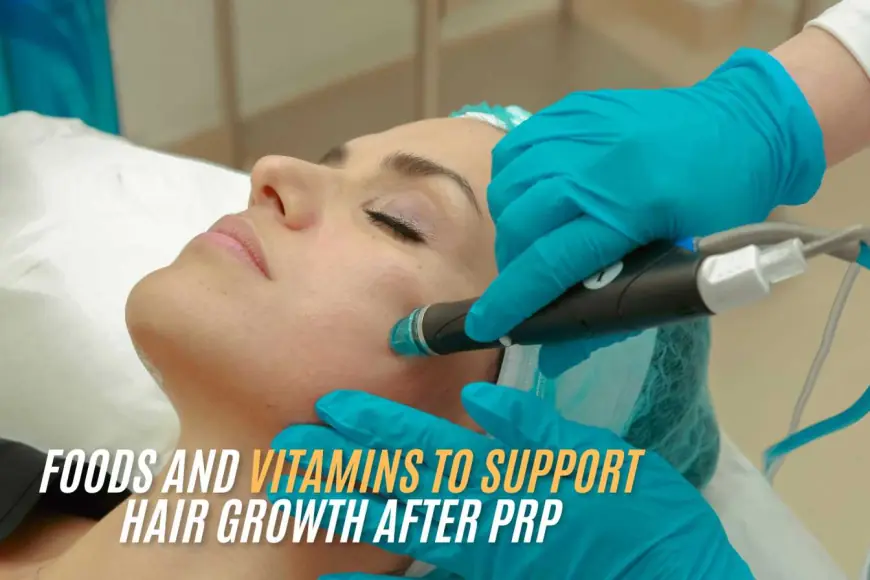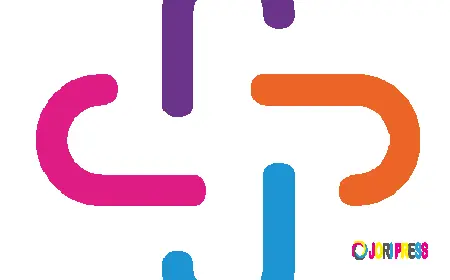Foods and Vitamins to Support Hair Growth After PRP
Discover the top foods and vitamins to support hair growth after PRP treatment. Learn what to eat, what to avoid, and how to maximize your results.

Platelet-Rich Plasma (PRP) therapy is a popular, non-surgical solution for hair loss that uses your body’s own healing factors to stimulate hair regrowth. While PRP treatments can yield impressive results, lifestyle and diet play a critical role in maximizing their effectiveness.
This guide focuses on the best foods and vitamins to support hair growth after PRP, so you can nourish your hair from the inside out and enjoy lasting results.
How Nutrition Supports PRP Results
PRP works by injecting concentrated platelets into the scalp, which release growth factors that stimulate hair follicles. For these cells to function optimally, they require a steady supply of oxygen, nutrients, and protein.
Why Nutrition Matters:
-
Blood circulation delivers oxygen and nutrients to the scalp
-
Protein and vitamins are essential for new cell formation and keratin production
-
Deficiencies in nutrients like iron or vitamin D can impair hair growth despite successful PRP
A poor diet can limit your body’s ability to respond to treatment. By combining good nutrition with medical intervention, you give your hair the best possible environment to grow.
Learn more about how PRP promotes hair health at PRP plasma treatment Sharjah.
Key Vitamins and Minerals for Hair Regrowth
1. Vitamin A
Supports cell growth and helps glands produce sebum, an oil that moisturizes the scalp.
-
Sources: Sweet potatoes, carrots, spinach, eggs
2. B-Complex Vitamins (Biotin, B12)
Biotin aids keratin production, while B12 helps oxygenate the scalp by supporting red blood cells.
-
Sources: Whole grains, eggs, nuts, dairy, leafy greens
3. Vitamin C
Promotes collagen formation and helps absorb iron, which is vital for follicle health.
-
Sources: Berries, citrus fruits, bell peppers, broccoli
4. Vitamin D
Plays a role in creating new hair follicles and has been linked to reduced hair shedding.
-
Sources: Salmon, mushrooms, fortified foods, sun exposure
5. Iron
Prevents anemia-related hair loss by ensuring follicles receive enough oxygen.
-
Sources: Red meat, lentils, spinach, tofu
6. Zinc
Supports oil glands around the follicles and accelerates repair processes.
-
Sources: Pumpkin seeds, oysters, chickpeas, beef
LSI keywords: hair regrowth vitamins, nutrients after PRP treatment, best supplements for hair recovery
Top Foods to Eat After PRP
A nutrient-rich diet supports the natural healing and regenerative effects of PRP. Focus on whole, unprocessed foods that offer long-term benefits.
-
Lean Proteins: Chicken, eggs, tofu for keratin production
-
Leafy Greens: Spinach, kale, Swiss chard provide iron, folate, and vitamin C
-
Nuts and Seeds: Walnuts, flaxseed, and pumpkin seeds offer omega-3s and zinc
-
Fruits: Berries and citrus fruits boost collagen and antioxidant protection
-
Whole Grains: Quinoa, oats, and brown rice fuel cellular repair
-
Fatty Fish: Salmon and sardines reduce inflammation with omega-3s
Get post-treatment nutrition guidance with PRP treatment Sharjah.
Foods and Habits to Avoid
Not all foods are created equal when it comes to supporting hair growth.
Avoid:
-
Sugary Foods: Increase inflammation and insulin spikes
-
Excess Caffeine and Alcohol: Can dehydrate and disrupt nutrient absorption
-
Low-Protein Diets: Starve the hair follicles of key building blocks
-
Smoking: Impairs blood flow to the scalp
Even minor diet improvements can have a cumulative effect on hair health and recovery.
Creating a Hair-Friendly Daily Routine
Beyond nutrition, your daily habits contribute significantly to PRP success.
Daily Practices:
-
Balanced Meals: Combine protein, healthy fats, and colorful veggies
-
Hydration: Aim for at least 8 glasses of water per day
-
Sleep and Stress Reduction: Manage cortisol levels that can impact hair
-
Scalp Care: Gentle massages improve circulation and encourage growth
Explore a comprehensive wellness approach with PRP for hair loss Sharjah.
FAQs
Should I take supplements after PRP?
Yes, if you have a known deficiency. Otherwise, focus on nutrient-rich foods first.
How soon will nutrition impact my results?
Typically within 4–6 weeks, when combined with ongoing PRP sessions.
Can diet replace PRP for hair loss?
Not entirely. Nutrition supports but doesn’t replace medical treatment for advanced hair loss.
Are there specific foods to avoid long-term?
Yes—sugar, processed snacks, and alcohol can undermine your results.
Conclusion
Combining the right foods and vitamins to support hair growth after PRP can significantly boost the success of your treatment. Focus on balanced meals, key nutrients, and healthy habits to nourish your scalp and stimulate hair from within.
Want stronger PRP results? Book a consultation to create a custom treatment and wellness plan that includes expert nutrition advice and advanced care.
What's Your Reaction?
 Like
0
Like
0
 Dislike
0
Dislike
0
 Love
0
Love
0
 Funny
0
Funny
0
 Angry
0
Angry
0
 Sad
0
Sad
0
 Wow
0
Wow
0

















































